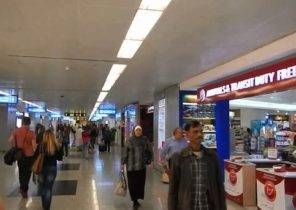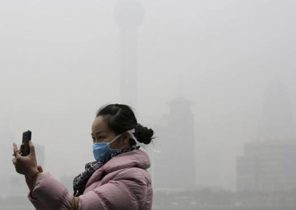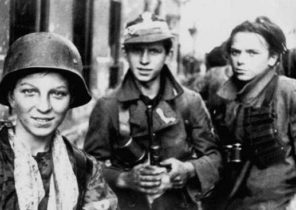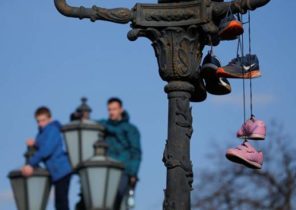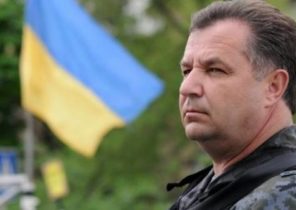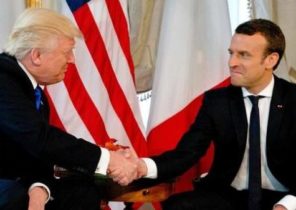26 Feb 1947, Stalin received in the Kremlin, directed by Sergei Eisenstein and actor Nikolai Cherkasov. Company to the Secretary-General was Vyacheslav Molotov and Andrei Zhdanov. The conversation concerned the events of 400 years ago and its reflection in film. The leadership there have been many comments about the blockbuster “Ivan the terrible”. Stalin was unhappy with the fact that the guardsmen in the picture resemble members of the Ku Klux Klan, Zhdanov was outraged that one of their leaders, Malyuta Skuratov, depicted in her dandy, and Molotov limited himself to remark that the film shows the little people.
Whether to create the recently published Vladimir Putin’s article about the Second world war in similar circumstances who influence him, we’ll know in a few decades. However, Stalin and the current Russian President, of course, share a passion for manipulating the past for political purposes and approach to the conflict of 1939-1945.
The article “75 years of Victory: a shared responsibility before history and the future” is nevertheless something more than the carefully fabricated image of history, created by Putin in order to garner support inside the country and to legitimize the aggressive policy of the Kremlin in the eyes of foreign partners. In a lot of parts she looks sincere historic Manifesto, which displays the specifics of collective memory of generations of Russian leader and a large part of society. This collective memory is formed not Stalin, but owes its position to the Stalinist purges Brezhnev.
Komsomol
Born in 1952, Putin belongs to the first postwar generation. He hardly survived a lot of memories about the era of the thaw and de-Stalinization. The future President was only 12 years old when Nikita Khrushchev lost his post as First Secretary of the Central Committee of the CPSU. His place was taken by Brezhnev, remaining in power for the next 18 years. One of the tasks he had set for himself the new leader was to educate the postwar generation in the spirit of the party line. The youth was to inculcate revolutionary romanticism and pride in the socialist Motherland. “The current generation of boys and girls had passed the harsh school of the revolutionary struggle and tempering that befell the older generation,” — said Brezhnev at the XXIII Congress of the CPSU in 1966.
The perfect tool considered the celebration of the victory over Germany. It Brezhnev laid the Foundation for the cult of the great Patriotic war, imbued with the spirit of militarism and combined with the demonstration of Imperial power, which we can see on television broadcasts of military parades. For the first time since 1945, the parade on red square took place in 1965, then the Victory Day was declared a festive day. Preparation of training materials for youth on this occasion, was engaged, in particular, the 33-year-old Alexander Chubaryan, who still advises the Russian leadership.
Quenching post-war generation was engaged in the Komsomol. At the turn of 1960-1970-ies in this organization consisted of every tenth citizen in the age of 14-28 years. A member of the Komsomol since at least 1972, was Putin. In 1975, he consisted on the account in the Komsomol organization of the KGB, where he as written in his characteristic, was responsible for the organizational and sports work. Another representative of the elite, Director of the foreign intelligence Service and the head of the Russian historical society Sergei Naryshkin also started his career in the Komsomol. In 1978, he became the Secretary of Committee VLKSM of the Leningrad mechanical Institute.
They both certainly have been on many actions associated with the perpetuation of the memory of the war, and was engaged in their organization. Young members of the Komsomol were also used as free labor. It is on their shoulders often rests the care of veterans. According to official figures, in 1970, the obligation to help those who were at war with Germany, took over two million members of Komsomol in Belarus. Popular were also the so-called all-Union trips to places of revolutionary, military and labor glory. In their framework was created memorials, restored monuments, conducted the ceremonies.
At the same time the special squads of pathfinders were engaged in search of the battlefields and of the remains of missing soldiers. Routes, the length of which sometimes amounted to several hundred kilometers, young people often overcame foot. They spent the night in the forest, lit bonfires and sang songs of the war years. The atmosphere of the adventure was the perfect alternative to the gray reality of the era of stagnation, so the figures are not surprising: in 1982, the Komsomolskaya Pravda wrote that in the previous ten years of the all-Union campaigns was attended by 60 million people.
On associated with the cult of the great Patriotic war, Komsomol events were abstracts, designed to unite the past with the present. The inscriptions on the banners, frightened the Imperial pretensions of the United States, revanchism of Germany, NATO preparing for war. In 1967 in Leningrad at the third all-Union rally winners hike Marshal Ivan Konev stressed the importance of socialist patriotism and willingness to give their lives for their country. In the campaigns he had seen “the true unity of the generations constituting the meaning of all our lives.” Appearing in the article, Putin’s phrase about “blood, living connection between generations” — is an attempt to revive the atmosphere of the 1960-1970-ies, which stands for the Russian ruling elite point of reference.
The activity of the Komsomol was not limited to the campaigns and helping veterans. publishing house “Young guard” produced millions of copies of pamphlets and books, among which particularly stood out for publication, accused the West of helping Hitler. It manifested itself in the fact that, as can be read also in the article, Putin, “Finance and industry” the UK and the US interacted with the German industry. People living in the realities of the Soviet Union, where there was no private enterprise could make only one conclusion: the leadership of these two States supported National socialist German workers party.
Stalin
Echo heard the Brezhnev policy is also contained in the article evaluating the actions of Stalin on the eve of the German attack on the Soviet Union. “If you take many of our novels, films and historical “research”, then they completely implausible portrayed the question of the role of Stalin in the Patriotic war,” said Khrushchev in his report on the personality cult, accusing former head ignoring the threats and the defeats of the first months of the conflict. At some point through this speech appeared the possibility to discuss about the fatal the year 1941.
From the point of view of Brezhnev, this kind of debate was a danger. Not by accident, “July 41 of the year” Grigory Baklanov (1964), “1941 June 22” Alexander Nekrich (1965) or the memories of Konstantin Simonov “Hundred day war” (1967) was not published or caused scandal. Nekrich’s book was withdrawn from libraries, and he was expelled from the party “for the deliberate perversion of the policies of the Communist party and the Soviet state before and during the initial period of the great Patriotic war that was used by foreign reactionary propaganda anti-Soviet purposes”.
The decision of the Committee of party control under the Central Committee of the Communist party in tune with the modern Russian criminal code, which prescribes punishment in the form of a fine or imprisonment for the intentional spread of false information about the activities of the USSR during the Second world war. Blocking Brezhnev process of de-Stalinization had an impact on the performance of the Putin generation about Stalin and the first months of the conflict. The criticism stopped, unwritten Brezhnev doctrine was consistent with the Latin Maxim “of the dead either good or nothing”.
In the official rhetoric of the returned abstracts that contained in the published under the editing of Stalin in 1948 brochure “Falsifiers of history”, which spoke of the inevitability of the German attack and committed in this context, the preparations. The Brezhnev elite preferred to emphasize the foresight of the leader on the eve of the war, not to mention Stalin’s response to a warning message about the attack, he received 17 June 1941: “T. Merkulov. Can send your source from the headquarters of German aviation to *** mother. It is not the source, and disinformation”. The corresponding image of the past in the collective memory of the inhabitants of the Soviet Union was formed not only books but also movies.
When Putin, pursuing the idea of the absence of friendly relations with Berlin, writes about the work of the intelligence and the “military and political struggle” against Germany in 1939-1941, the impression that this is one of the images generated by cinema. The President acknowledged what a huge impression on him made the film “Shield and sword” (1967) — adaptation of distorting the historical facts of Roman military correspondent of “Pravda” Vadim Kozhevnikov. Kozhevnikov (by the way, he had a hand in the prohibition of the publication of the book by Vasily Grossman “Life and fate”, which contradicted the official version of history) described in this adventure Alexander Belov, who under the name of Johann Weiss conducts intelligence activities in the Abwehr and the SS before the war began.
Identity
Commentators publish Putin typically focus on the manipulations and the unsaid. Silencing events, such as the exclusion of the USSR from the League of Nations and the execution of Polish officers in 1940, naming the seizure of Lithuania, Latvia and Estonia actions conform to international law, it is a conscious and deliberate step. The mention of them would violate the integrity of the discourse. However, look at this text not only as a cynical distortion of history for political purposes, but as a Manifesto of demonstrating the performance of Putin’s elite about the Second world war, gives us a wider field for interpretation. If we assume that many fragments of Putin’s articles show the actual collective memory of Russian leaders, and to compare it with the realities in which they grew, one can find elements of their identity, which was influenced by stories about the military exploits, counter-intelligence, sagacity Stalin and legitimate the annexation of neighboring States. There is no place for the slogan “never again”, the Holocaust or the suffering of civilians, defeats the red army in the first months of the war and engulfed in 1941, the Moscow panic when from 16 to 18 October 438 from state enterprises in the capital fled 779 executives.
The article also provides further proof that the memory of the Russian ruling elites is incompatible with the memory of the European. Moreover, the increasing aggressiveness of Russia in the international arena clearly indicates that she is not ready in the name of “responsibility to present and future generations” to leave contrary to the assertions of historians representations of the Brezhnev era. But if post-Putin Russia, and it can occur in the not so distant future, they will refuse, Putin’s words will be perceived just as a curiosity.
